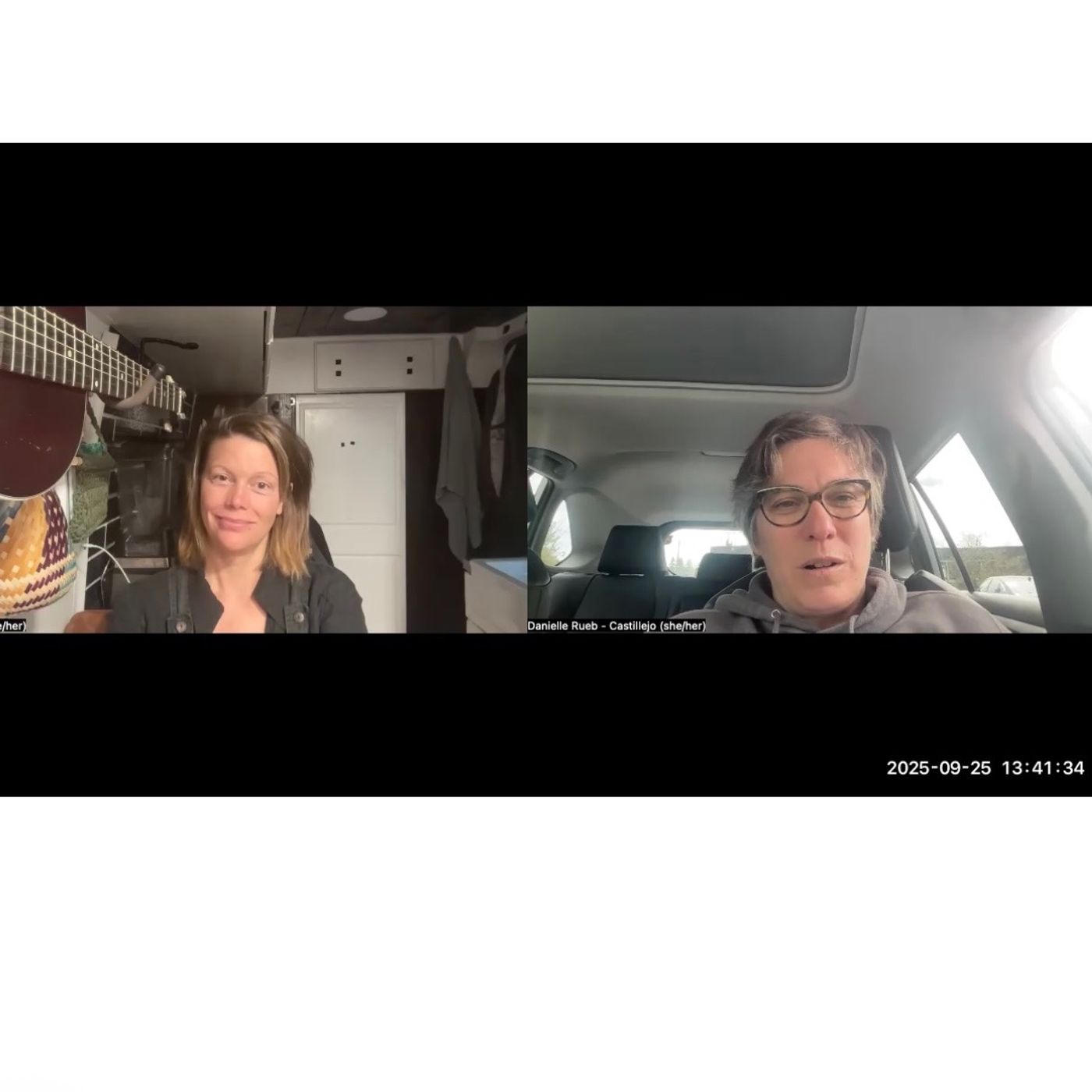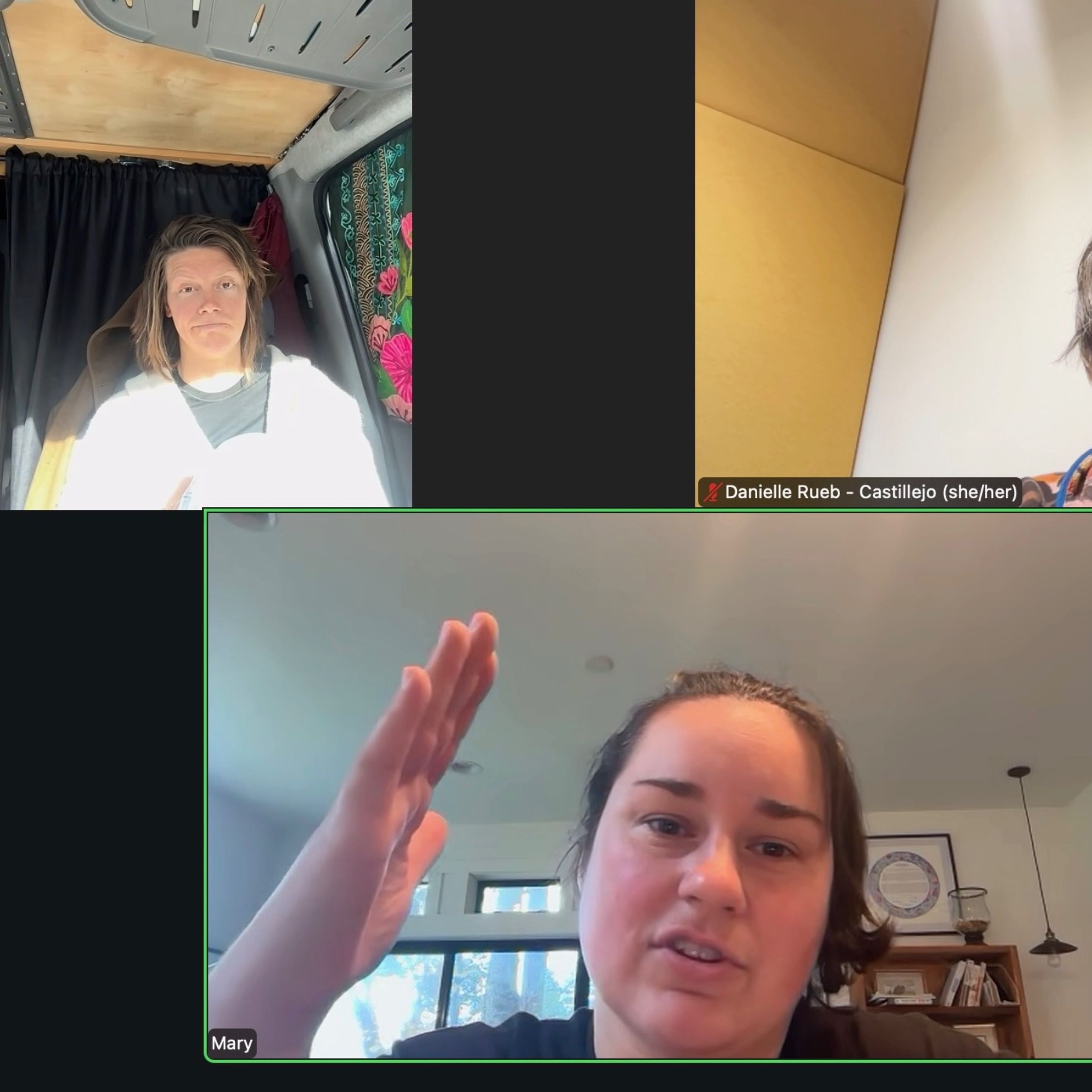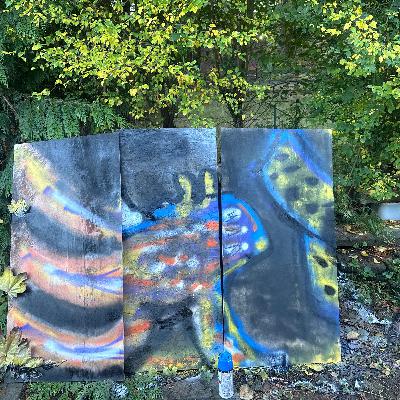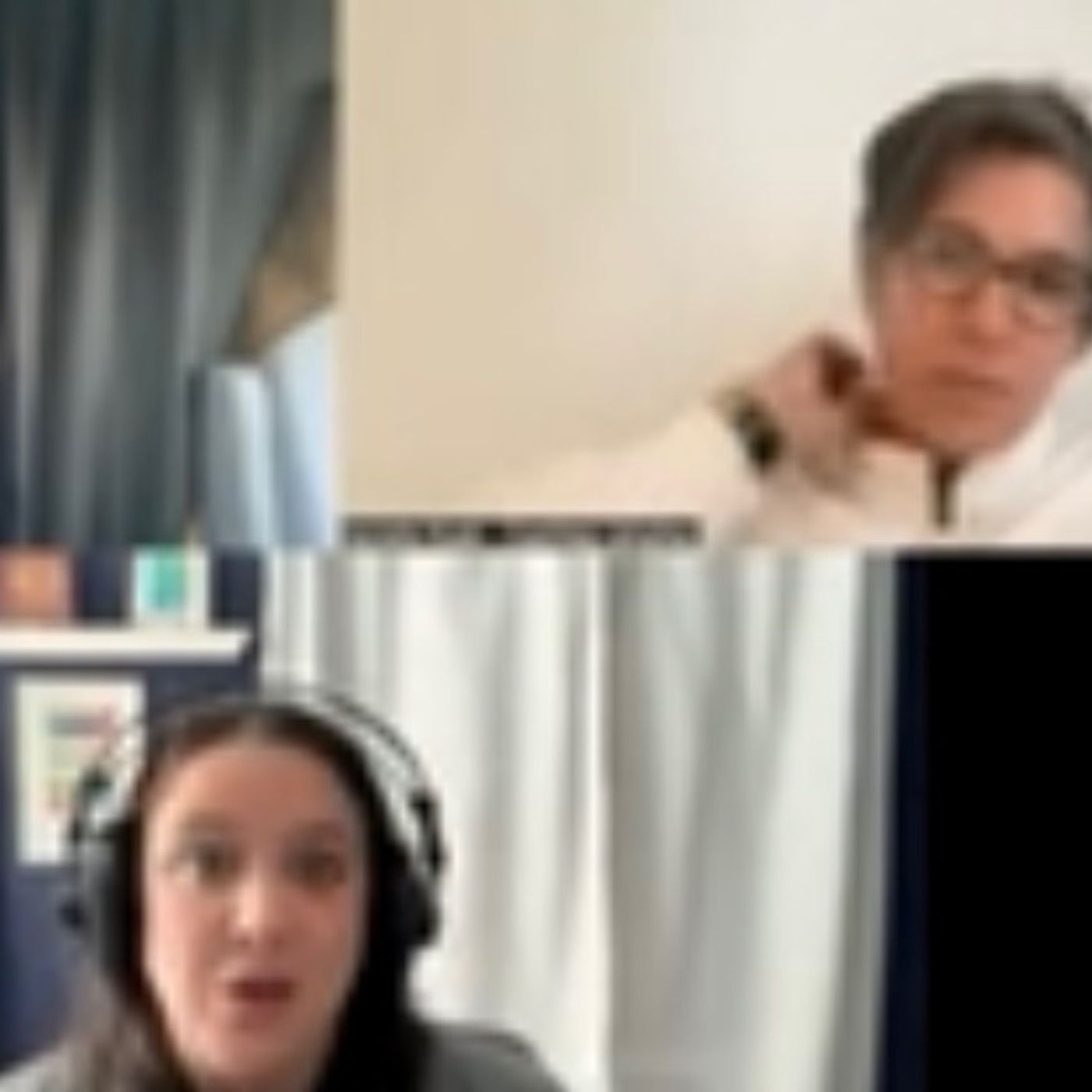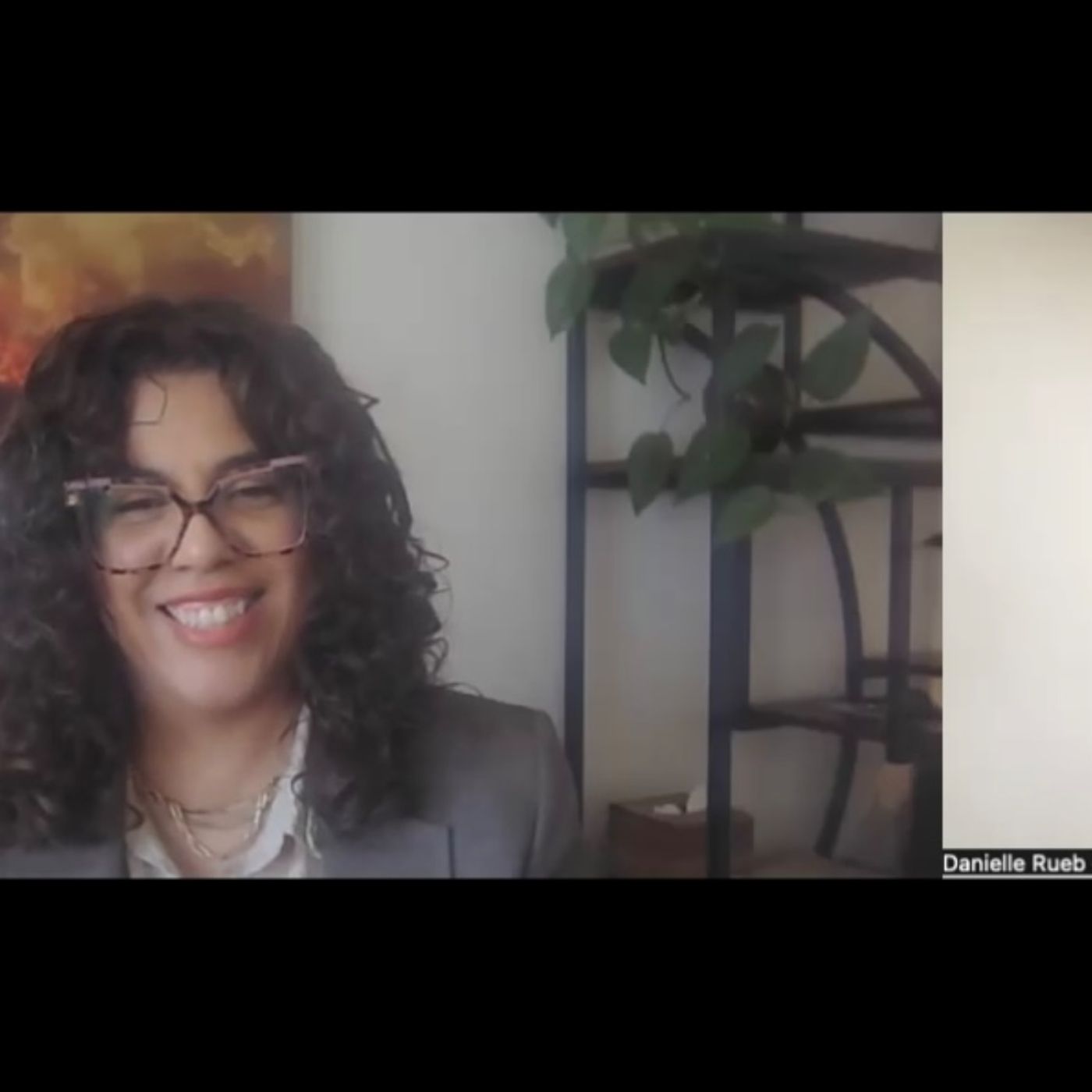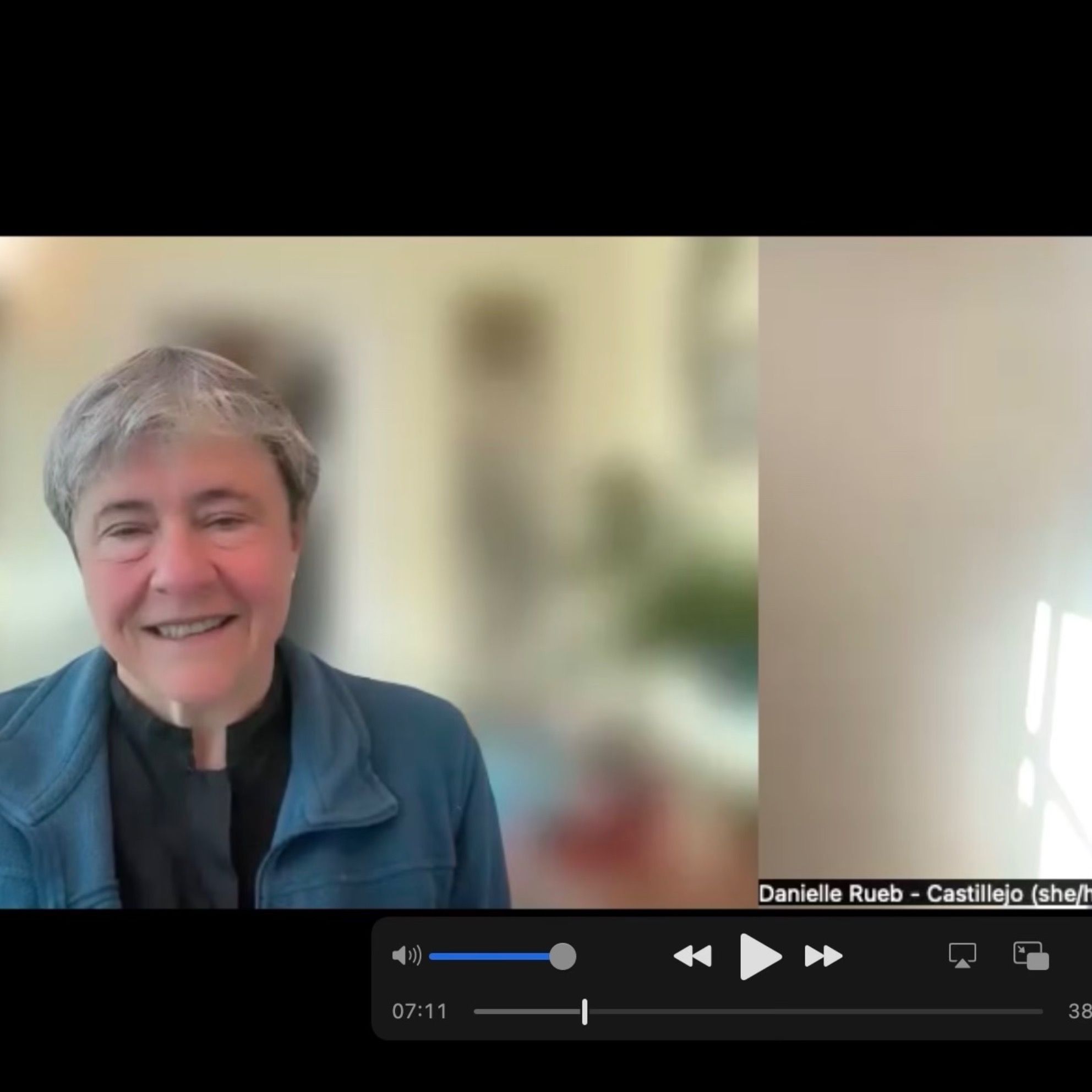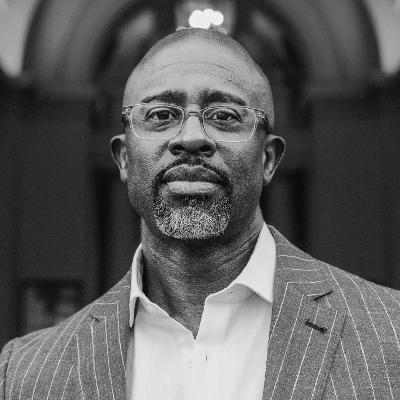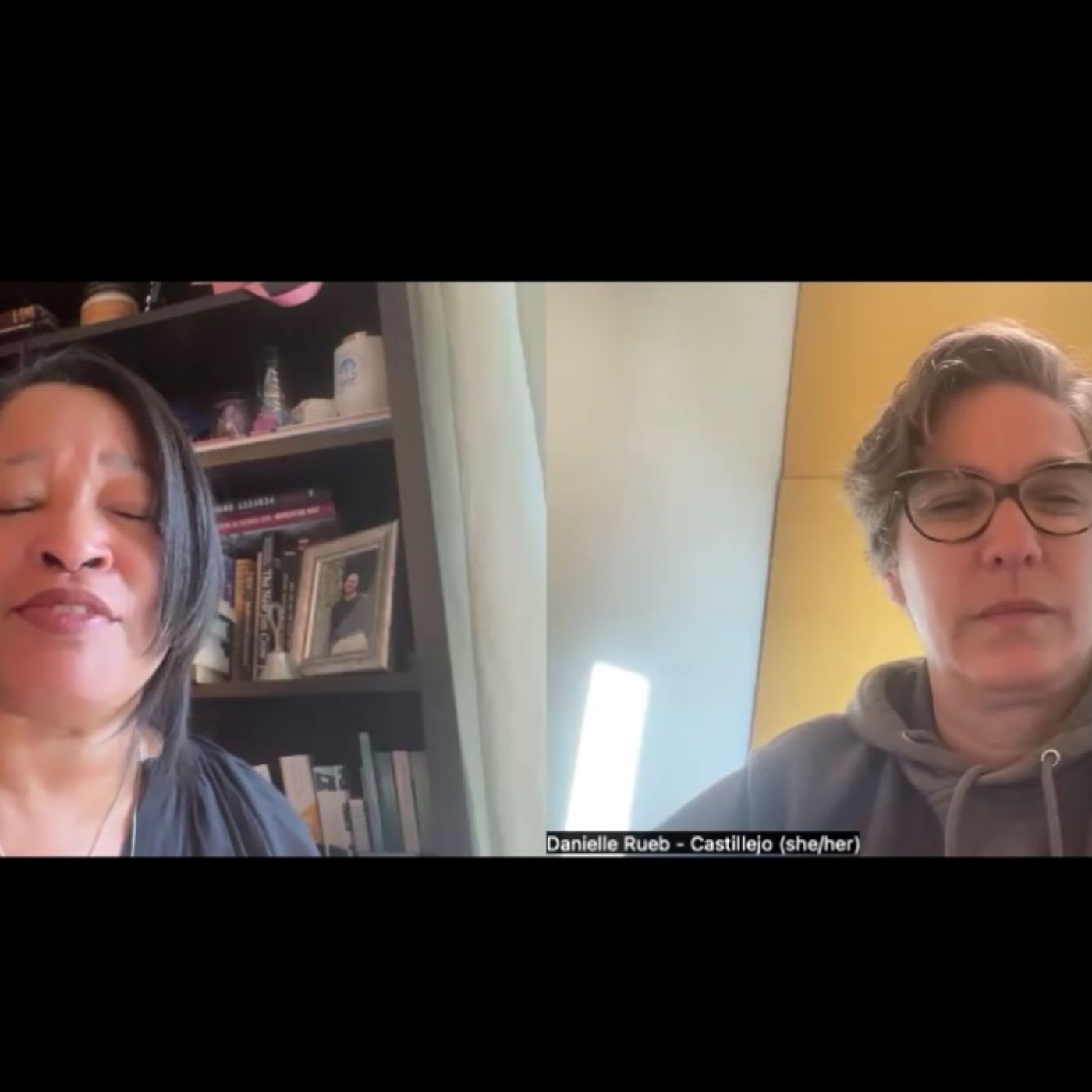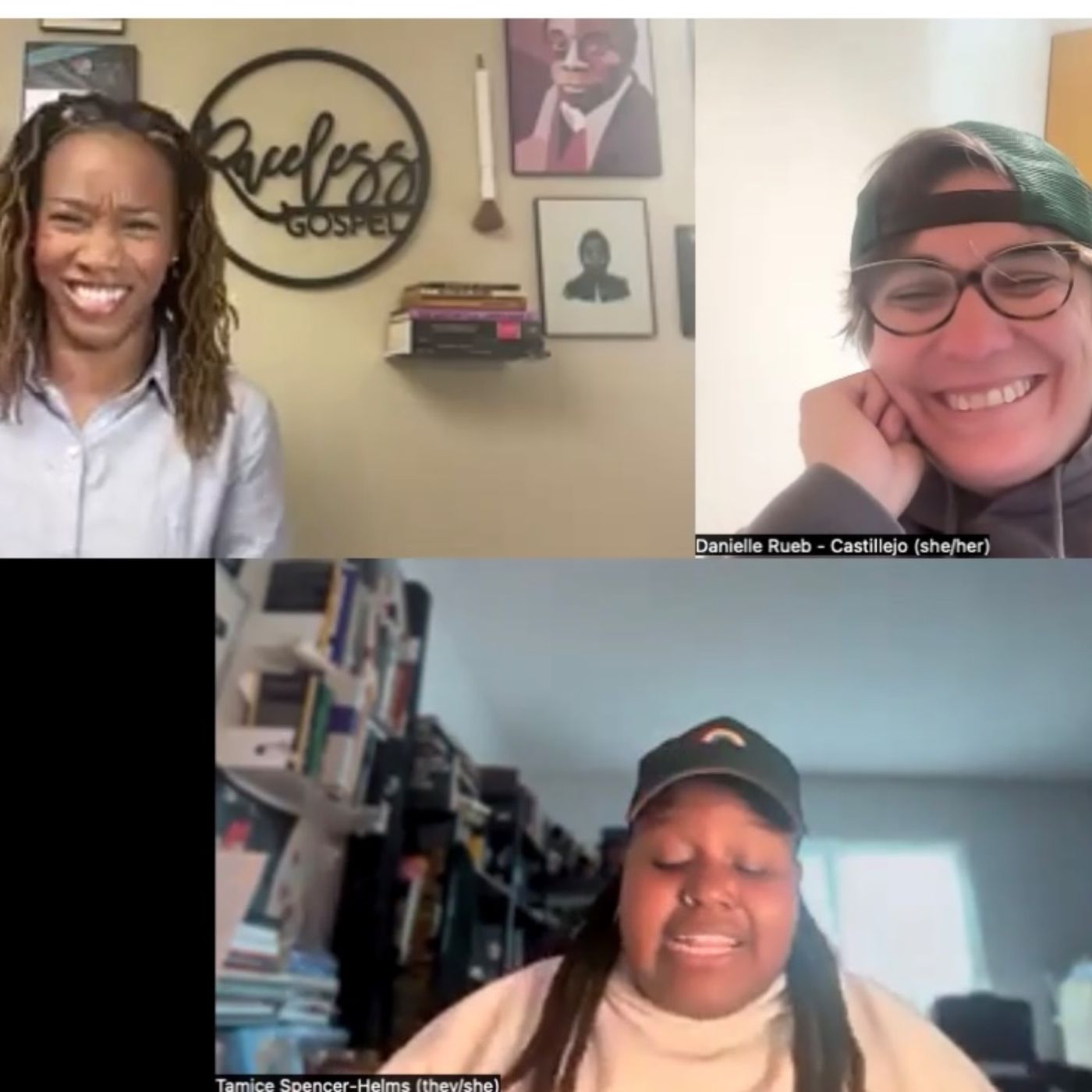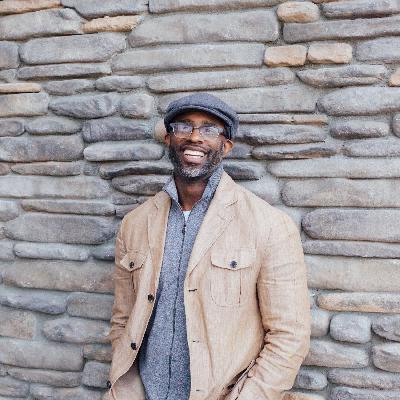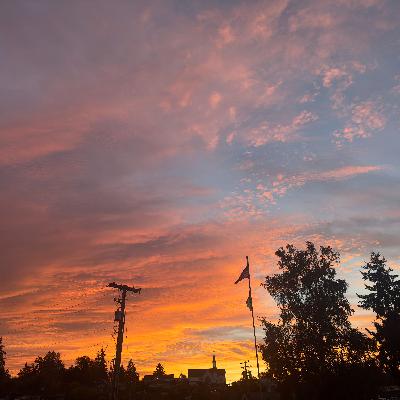Season 6, Episode 5: Jenny Mcgrath on Reality and Therapy - How do we get through this?
Description
Bio: Jenny - Co-Host Podcast (er):
I am Jenny! (She/Her) MACP, LMHC
I am a Licensed Mental Health Counselor, Somatic Experiencing® Practitioner, Certified Yoga Teacher, and an Approved Supervisor in the state of Washington.
I have spent over a decade researching the ways in which the body can heal from trauma through movement and connection. I have come to see that our bodies know what they need. By approaching our body with curiosity we can begin to listen to the innate wisdom our body has to teach us. And that is where the magic happens!
I was raised within fundamentalist Christianity. I have been, and am still on my own journey of healing from religious trauma and religious sexual shame (as well as consistently engaging my entanglement with white saviorism). I am a white, straight, able-bodied, cis woman. I recognize the power and privilege this affords me socially, and I am committed to understanding my bias’ and privilege in the work that I do. I am LGBTQIA+ affirming and actively engage critical race theory and consultation to see a better way forward that honors all bodies of various sizes, races, ability, religion, gender, and sexuality.
I am immensely grateful for the teachers, healers, therapists, and friends (and of course my husband and dog!) for the healing I have been offered. I strive to pay it forward with my clients and students. Few things make me happier than seeing people live freely in their bodies from the inside out!
Danielle (00:28 ):
Welcome to the Arise Podcast, conversations based in what our reality is, faith, race, justice, gender in the church, therapy, all matter of things considered just exploring this topic of reality. Hey, I'm having this regular podcast co-host. Her name is Jenny McGrath. She's an M-A-C-P-L-M-H-C. She's dope. She's a licensed mental health counselor, a somatic experiencing practitioner, certified yoga teacher, and an approved supervisor in the state of Washington. She spent over a decade researching the ways in which the body can heal from trauma through movement and connection. And she's come to see that bodies are so important and she believes that by approaching the body with curiosity, we can begin to listen to the innate wisdom our body has to teach us. And that is where the magic happens. So I hope you're as thrilled as me to have such an amazing co-host join me. Yeah, we're going to talk about reality and therapy. We're just jumping in. Jenny and I are both writing books.
Jenny, I think it's funny that we are good friends and we see each other when we're around each other, but then if not, we're always trading reels and often they're like parodies on real life. Funny things about real life that are happening, which I've been, the theme of my book is called Splitting, and I know you write about purity culture, and a part of that I think really has to do with what is our reality and how is it formed? And then that shapes what we do, how we act, how we behave in the world, how we relate to each other. So any thoughts on that? On Thursday, September 25th,
Jenny (02:17 ):
I mean, as you named that, I think 10 minutes before this started, I sent you a reel. There was a comedian singing Why She Doesn't Go to Therapy, and it says, all my friends that go to therapy are mean to me, and you don't have boundaries. You're just being an asshole. And it was good, but it was also existential. This was what seems to me a white woman. And I do think as a white woman who's a therapist, I feel existential a lot about the work I do in therapy and in healing spaces, and how we do this in a way that doesn't promote this hyper individualistic reality. And this idea that everything I see and everything I think is the way that it is, how do I stay open to more of a communal or collective way of knowing? And I think that that's a challenging thing. So that's something that comes to mind for me as you bring up Instagram reels.
Danielle (03:26 ):
Oh man, I have so many thoughts on that that I wasn't thinking before you said it, but I think they were all locked in a vault, been unleashed. No, seriously. You come from your own position in the world. Talk about your position and how did you come to that point of seeing more of a collective mindset or reality point of view?
Jenny (03:47 ):
I mean, honestly, I think a big part has been knowing you and working with you and knowing that I think we've had conversations over the years of both the privilege and the detriment that happens in a lot of white therapeutic spaces that say you just need detach from your family, from your community, from those who have harmed you. And I want to be very, very clear and very careful that obviously I do think that there are situations we need to extract ourselves from and remove ourselves from. And I think that can become disabling for bodies to, I've been having this thing play in my head lately where I'm like, are you healed? Or have you just cut off everyone that triggers you?
Yeah, and I saw another, speaking of meme, it was like, I treat my trauma like Trump treats tariffs. I just implement boundaries arbitrarily, and they harm everyone.
And so I think it's, there is a certain privilege that comes with being able to say, I'm just going to step away. I'm going to do my own thing. I'm going to do my healing journey. And I think there is a detriment to that and there's a loss. And I think we have co-evolved to be in community and to tell stories and to share reality and to hold reality in the tension of our space. I think about it as we each have a different lens. There's no objective reality, but if I can be open to your lens and you can be open to my lens, then we actually have two lenses, and then if we have five lenses or 10 lenses, we can have a much fuller picture of where we are rather than seeing the world through the really monochromatic white, patriarchal, Christian nationalist lens that we've been maybe conditioned, or at least I was conditioned to see the world through.
Danielle (06:10 ):
Yeah. Whoa. Yeah, I know we've talked about this so many times, and I think it just feels so present right now, especially as every moment it feels like every day. If you watch the news, if you don't take a break, I think you can be jarred at any moment or dissociated at any moment, or traumatized at any moment, or maybe feel a bit of joy too when someone says a smack down on your side of the issue. And I think that when we get in that mode of constantly being jarred and then we try to come into a healing space, it's like how do we determine then what is actually healing for us? What is actually good? What is actually wise? And I agree, I think if we're in a rhythm of being on our own, and I'm not criticizing, I mean, I get lonely and I'm part of a group, so I'm not speaking to loneliness particularly, but I'm speaking to the idea that no one else has input in your life, even the kind of input you may not agree with, but no one else is allowed to speak to you.
(07:15 ):
When I get in those spaces, it's not that I just feel lonely, I don't feel any hope. I don't feel any movement or any possibility because let's say that this ends tomorrow, that authoritarian regime magically ends. It's healed tomorrow. We're going to have to look at all of our people in our lives and face them and decide what we're going to do. I mean, that's what I think about a lot. At the end of the day, I might sit next to someone that hates me or that I perhaps might have rage and anger towards them. What are we going to do? So I don't know, when you talk about the different lenses, I'm not sure how that all mixes together. I don't have an answer, basically. Shoot.
Jenny (08:05 ):
But I also think that that's part of maybe how we hold reality is maybe it is more about presence and being with what is, rather than having an answer, I think I become more and more skeptical of anyone who says they have an answer for anything.
Danielle (08:31 ):
So I mean, there was this guy that recently passed away, and there was, on one hand I wanted to really talk about it, and on the other hand, I didn't want to talk about it because it took up so much space. And I feel that even as we start to talk about how do we form healing spaces in therapy with that, I think, what did you call it that, what kind of lens did y

